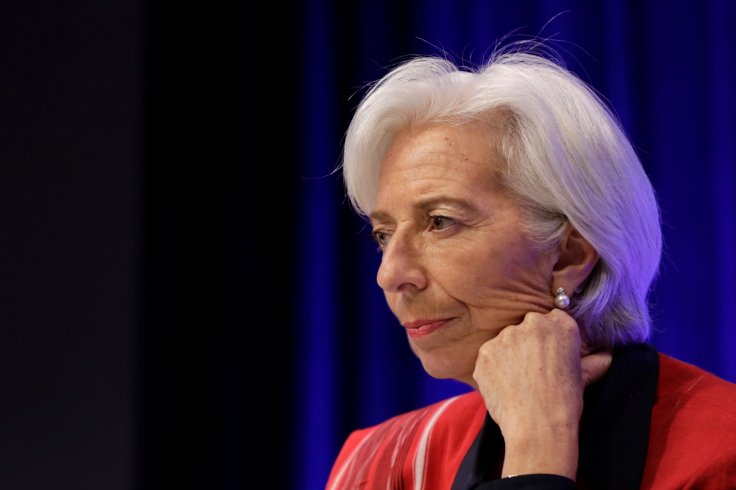
Christine Lagarde, the first woman to become finance minister of a G8 economy and the first woman to head the International Monetary Fund (IMF), on Nov.1 will become the first woman president of the powerful European Central Bank (ECB).
Lagarde on Tuesday was nominated by the European Council (EC) to succeed Mario Draghi as ECB president. She is currently managing director of the IMF and brings to the ECB her immense experience in monetary policy. She became IMF boss in 2011.
Her astute political skills are expected to serve her well as ECB president, said analysts, despite her not being an economist. Her predecessor Draghi, is an economist widely respected for his body of work.
Lagarde, 63, studied law and graduated from Paris West University Nanterre La Défense, where she obtained master's degrees in English, labor law, and social law. She then moved into the world of multinational state finance and politics, making a career as a lawyer with Baker & McKenzie, a multinational law firm based in Chicago.
She became France's Minister of Commerce in 2005 and Minister of the Economy, Finance and Industry in 2007.
EC president Donald Tusk cited Lagarde's international experience, saying Lagarde would make a "perfect" president of the ECB.
Lagarde said she's "honored to have been nominated for the ECB Presidency."
She added that in light of this, and in consultation with the Ethics Committee of the IMF Executive Board, "I have decided to temporarily relinquish my responsibilities as IMF Managing Director during the nomination period."
In 2018, Forbes ranked Lagarde third on its list of the world's most powerful women behind German Chancellor Angela Merkel and UK Prime Minister Theresa May. Talk of Lagarde's run for the presidency of France is getting louder.
"She's really a political figure, much more so than an economist," said Alicia Levine, chief strategist at BNY Mellon Investment to Bloomberg.
"She's very political. She's very wise, and I would assume she has the best economists that can help her with this. It is a little puzzling because she's not known as one of the leading economic minds out there."
A politician might be what the ECB needs now since Lagarde will be expected to resuscitate quantitative easing to prop-up Europe's sagging economic growth.
"You need an ECB president who follows in the footsteps of Draghi, and I think it should be someone who is very skilled in thinking of new ways to implement and craft monetary policy," said John Normand, JPMorgan's head of cross-asset fundamental strategy.
"I'd be concerned if the next ECB president is someone who doesn't have a lot of experience in monetary policy."
This article was first published in IBTimes US. Permission required for reproduction.








